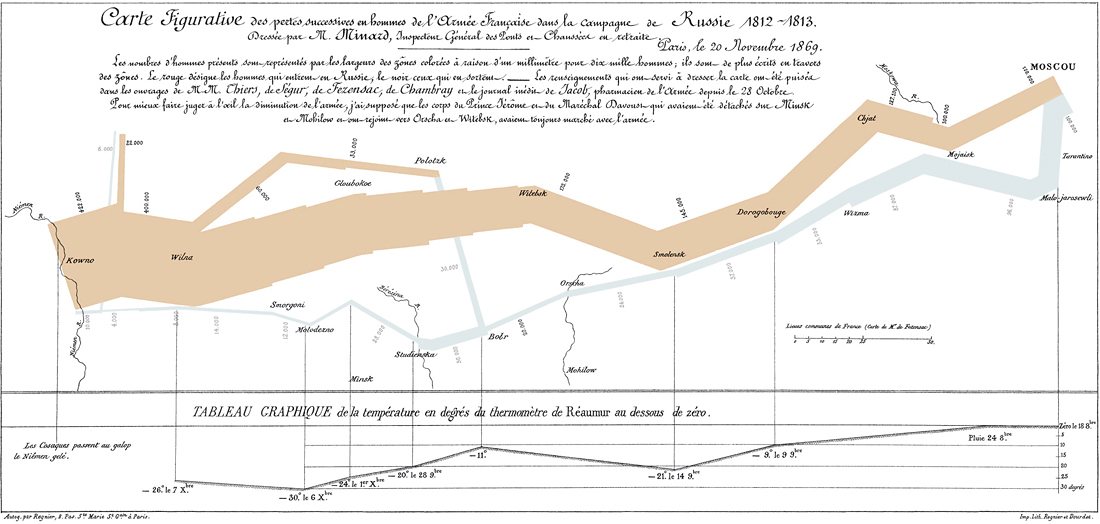Hey History Buffs: Thoughts on Napoleon
Moderator: Community Team
20 posts
• Page 1 of 1
Hey History Buffs: Thoughts on Napoleon
So I am going to start off with this. I do not know all that much about him. I wasn't a history major and most history classes I took even in College never really got into Napoleon beyond his military successes and failures. At best we maybe brushed on his political actions beyond war. So reading the Count of Monte Cristo and hearing repeated references to him, his policies and how he was perceived by various French groups and I started getting interested because the book has been moving away from him at this point now that he's been defeated at Waterloo and re-overthrown. So who really was Napoleon? What policies did institute? Was he a good leader? Was he a positive force for France? Did he believe in the political views he preached? Or was it just a ruse to get him popular with the people of France and gain more power? I know a lot of these are opinion based questions but would like to hear some facts to back them up.
Thank you.
Thank you.
Maxleod wrote:Not strike, he's the only one with a functioning brain.
-

 strike wolf
strike wolf
- Posts: 8345
- Joined: Fri May 19, 2006 11:03 pm
- Location: Sandy Springs, GA (just north of Atlanta)









Re: Hey History Buffs: Thoughts on Napoleon
As a general, Napoleon was every bit as brilliant as the legend would have it. There's no doubt that in battle after battle, he made all the right moves.
As a politician, not so much. Napoleon was arrogant, dishonest, and opportunistic. He broke treaty after treaty, turning friends into enemies and turning lukewarm enemies that could be bargained with into bitter enemies that would bargain no longer.
After the treaties of Luneville in 1801 and Amiens in 1802, France had everything she had asked for in the Wars of the Revolution. The other European nations accepted the very debatable French claim to control everything on the west bank of the Rhine, the British returned her colonies and folded up their blockade, the Pope accepted the Revolutionary confiscation of Church lands in France, the Austrians accepted French hegemony over Northern Italy, and everybody recognised the Helvetian, Cisalpine, and Batavian republics. Basically, everything France had asked for, France had gotten. It was total success, time to send home the army and live in peace and prosperity for the rest of their lives.
Napoleon's inability to settle down and enjoy the peace, his arrogant decision to meddle in the domestic affairs of the Batavian and Helvetian republics in clear violation of the treaties, his contemptuous ultimatums to the British and the Russians, and his existing violations of the Concordat with the Pope, all contributed to the resumption of hostilities with Britain in 1803 and with most of the rest of Europe in 1804 and 1805.
After that came some more brilliant victories on the battlefield, which in turn yielded more opportunities for favourable peace treaties, but over and over again Napoleon found himself arrogantly demanding that one of his defeated enemies yield to him on one issue or another, which inevitably brought them back to the war. Arrogance, greed, opportunism, perhaps a bit of paranoia, all led to him throwing away one good peace after another.
At least four million people died in the Napoleonic wars, and tens of millions were impoverished, and it was all unnecessary. This is what you have to understand about Napoleon. He stands as a monument to the futility of greed. He was crushed not because he failed to defeat his enemies (he defeated most of them several times!) but because hubris prevented him from enjoying the very generous spoils of war that his defeated opponents were prepared to give up. All those dead, all those crippled, all those left homeless, all for nothing. For sure in 1802, and probably several times thereafter, there was a chance for France to just stop fighting and to keep everything, and he threw it away.
Now, just briefly to touch on some of your other questions:
Was he a positive influence overall? Definitely not. As already pointed out, the Napoleonic Wars were completely futile and stupid, and a huge burden to France in every way. But it doesn't stop there. Napoleon meddled in every aspect of society in France and in the occupied territories. He rewrote the legal code, micromanaged the economy, wrote or had written massive sets of regulations. He wasn't a communist, but might as well have been. Nothing went on in Napoleon's empire that didn't have a tiresome body of regulations attached to it. You could easily compare Napoleon to any of the major socialist failures of the 20th century, and he would be at home in their presence.
Did he practise what he preached? Now, that's a tough one, because he didn't really preach. Napoleon rode to power on the coat-tails of the Revolution, but he wasn't really a Revolutionary. If anything, as time went on he became more reactionary every year, and his promotion of his relatives to royal positions throughout the occupied lands was obviously an old-fashioned dynastic power grab. So, it would be easy to call him a hypocrite, but it's only partially true, because he never really claimed to be a Revolutionary. Revolutionary slogans were chanted in his name, and he tolerated them because of their propaganda value, but he didn't really encourage them or try very hard to make anyone believe that he agreed with them.
As a politician, not so much. Napoleon was arrogant, dishonest, and opportunistic. He broke treaty after treaty, turning friends into enemies and turning lukewarm enemies that could be bargained with into bitter enemies that would bargain no longer.
After the treaties of Luneville in 1801 and Amiens in 1802, France had everything she had asked for in the Wars of the Revolution. The other European nations accepted the very debatable French claim to control everything on the west bank of the Rhine, the British returned her colonies and folded up their blockade, the Pope accepted the Revolutionary confiscation of Church lands in France, the Austrians accepted French hegemony over Northern Italy, and everybody recognised the Helvetian, Cisalpine, and Batavian republics. Basically, everything France had asked for, France had gotten. It was total success, time to send home the army and live in peace and prosperity for the rest of their lives.
Napoleon's inability to settle down and enjoy the peace, his arrogant decision to meddle in the domestic affairs of the Batavian and Helvetian republics in clear violation of the treaties, his contemptuous ultimatums to the British and the Russians, and his existing violations of the Concordat with the Pope, all contributed to the resumption of hostilities with Britain in 1803 and with most of the rest of Europe in 1804 and 1805.
After that came some more brilliant victories on the battlefield, which in turn yielded more opportunities for favourable peace treaties, but over and over again Napoleon found himself arrogantly demanding that one of his defeated enemies yield to him on one issue or another, which inevitably brought them back to the war. Arrogance, greed, opportunism, perhaps a bit of paranoia, all led to him throwing away one good peace after another.
At least four million people died in the Napoleonic wars, and tens of millions were impoverished, and it was all unnecessary. This is what you have to understand about Napoleon. He stands as a monument to the futility of greed. He was crushed not because he failed to defeat his enemies (he defeated most of them several times!) but because hubris prevented him from enjoying the very generous spoils of war that his defeated opponents were prepared to give up. All those dead, all those crippled, all those left homeless, all for nothing. For sure in 1802, and probably several times thereafter, there was a chance for France to just stop fighting and to keep everything, and he threw it away.
Now, just briefly to touch on some of your other questions:
Was he a positive influence overall? Definitely not. As already pointed out, the Napoleonic Wars were completely futile and stupid, and a huge burden to France in every way. But it doesn't stop there. Napoleon meddled in every aspect of society in France and in the occupied territories. He rewrote the legal code, micromanaged the economy, wrote or had written massive sets of regulations. He wasn't a communist, but might as well have been. Nothing went on in Napoleon's empire that didn't have a tiresome body of regulations attached to it. You could easily compare Napoleon to any of the major socialist failures of the 20th century, and he would be at home in their presence.
Did he practise what he preached? Now, that's a tough one, because he didn't really preach. Napoleon rode to power on the coat-tails of the Revolution, but he wasn't really a Revolutionary. If anything, as time went on he became more reactionary every year, and his promotion of his relatives to royal positions throughout the occupied lands was obviously an old-fashioned dynastic power grab. So, it would be easy to call him a hypocrite, but it's only partially true, because he never really claimed to be a Revolutionary. Revolutionary slogans were chanted in his name, and he tolerated them because of their propaganda value, but he didn't really encourage them or try very hard to make anyone believe that he agreed with them.
“Life is a shipwreck, but we must not forget to sing in the lifeboats.”
― Voltaire
― Voltaire
-

 Dukasaur
Dukasaur
- Community Team

- Posts: 28154
- Joined: Sat Nov 20, 2010 4:49 pm
- Location: Beautiful Niagara





























 3
3




 2
2


Re: Hey History Buffs: Thoughts on Napoleon
Inb4 betiko "my great great great grandfather invented Napoleon Bonaparte"
el cartoncito mas triste del mundo
-

 nietzsche
nietzsche
- Posts: 4597
- Joined: Sun Feb 11, 2007 1:29 am
- Location: Fantasy Cooperstown





















Re: Hey History Buffs: Thoughts on Napoleon
The one thing Napoleon spent more time doing than anything else..... paperwork, and he was ruined in the end by letting his emotions rule rather than appealing to his intellect
Would have loved to see Stanley Kubrick's Napoleon movie. Despite years of work and preparation, he had to abandon it completely. At least Eyes Wide Shut came out of it
Would have loved to see Stanley Kubrick's Napoleon movie. Despite years of work and preparation, he had to abandon it completely. At least Eyes Wide Shut came out of it
-

 Phatscotty
Phatscotty
- Posts: 3714
- Joined: Mon Dec 10, 2007 5:50 pm


























Re: Hey History Buffs: Thoughts on Napoleon
In the end, Napoleon came up short. 
Which has nothing to do with "tiny" (he was actually 5' 6" ... while not a Washington, few people of the era were ...)
Which has nothing to do with "tiny" (he was actually 5' 6" ... while not a Washington, few people of the era were ...)

-

 tzor
tzor
- Posts: 4076
- Joined: Thu Feb 22, 2007 9:43 pm
- Location: Long Island, NY, USA



















Re: Hey History Buffs: Thoughts on Napoleon
Napoleon was a welcome sight to end the insanity of the French Revolution. Then it turned out to be a case of "Meet the New Boss, same as the old boss".
But, Napoleon was a godsend to a certain banker family. The Rothschild brothers had control of four central banks, Paris, London, Naples and Vienna. The Rothshchild's financed all sides of Napoleon's wars and especially benefited Nathan Rothschild.
In the end, Napoleon who thought he was a great leader learned that he was just a pawn to the money powers.
The best thing Napoleon did was end the insanity of the French Revolution and institute the Napoleonic reforms which are basically still in use to this very day.
But, Napoleon was a godsend to a certain banker family. The Rothschild brothers had control of four central banks, Paris, London, Naples and Vienna. The Rothshchild's financed all sides of Napoleon's wars and especially benefited Nathan Rothschild.
In the end, Napoleon who thought he was a great leader learned that he was just a pawn to the money powers.
The best thing Napoleon did was end the insanity of the French Revolution and institute the Napoleonic reforms which are basically still in use to this very day.
-
 patches70
patches70
- Posts: 1664
- Joined: Sun Aug 29, 2010 12:44 pm


Re: Hey History Buffs: Thoughts on Napoleon
Napoleon gained 'fame' in his role as an artillery officer in Paris during the riots (yeah, he blasted a lot of 'rebels' and civilians). As Robespierre and his nonsense spread, Napoleon went off to war knocking out neighboring states--thanks to the surge in "nationalism" (or really, enslaving Frenchmen to join the army--i.e. conscription, if you want the more emotionally appealing term).
Napoleon was too busy fighting abroad to have much to do with domestic politics.
Marshall-Cornwall's book Napoleon is a good read.
Napoleon was too busy fighting abroad to have much to do with domestic politics.
Marshall-Cornwall's book Napoleon is a good read.
-

 BigBallinStalin
BigBallinStalin
- Posts: 5151
- Joined: Sun Oct 26, 2008 10:23 pm
- Location: crying into the dregs of an empty bottle of own-brand scotch on the toilet having a dump in Dagenham


















Re: Hey History Buffs: Thoughts on Napoleon
As a general, easily one of the best in history. And when you keep winning battles, your troops trust you and become pretty loyal to you because they know you can win.
As for politics, well, unlike his predecessors of the French Revolution, he did not ban the church and welcomed it back in. And I think he ran France on a war economy. And considering how successful he was, it did pretty well for awhile. He was not as extreme as the people he overthrew in a coup-de-tat in that he would go around guillotining people. In fact, he's credited with getting rid of feudalism in territories that he ended up conquering and bringing religious toleration (whereas the people he overthrew were quite anti-religious).
He wasn't perfect, but he was far from the worst leader France has ever had, at least in regards to his reforms and military prowess.
As for politics, well, unlike his predecessors of the French Revolution, he did not ban the church and welcomed it back in. And I think he ran France on a war economy. And considering how successful he was, it did pretty well for awhile. He was not as extreme as the people he overthrew in a coup-de-tat in that he would go around guillotining people. In fact, he's credited with getting rid of feudalism in territories that he ended up conquering and bringing religious toleration (whereas the people he overthrew were quite anti-religious).
He wasn't perfect, but he was far from the worst leader France has ever had, at least in regards to his reforms and military prowess.
"Eh, whatever."
-Anonymous
What, you expected something deep or flashy?
-Anonymous
What, you expected something deep or flashy?
-

 muy_thaiguy
muy_thaiguy
- Posts: 12746
- Joined: Fri May 18, 2007 11:20 am
- Location: Back in Black








Re: Hey History Buffs: Thoughts on Napoleon
BigBallinStalin wrote:(or really, enslaving Frenchmen to join the army--i.e. conscription, if you want the more emotionally appealing term).
This is a interesting point that needs repeating. Really the whole notion of nation states conscripting their entire populations to go after other nation states who in turn conscript their entire populations can go back to Napoleon. No world war would have been even remotely possible without his brilliant idea.
Let's cite the The Encyclopædia Britannica
Conscription, also called draft, compulsory enrollment for service in a country’s armed forces. It has existed at least from the time of the Egyptian Old Kingdom (27th century bce), but there have been few instances—ancient or modern—of universal conscription (calling all those physically capable between certain ages). The usual form—even during total war—has been selective service.
Modified forms of conscription were used by Prussia, Switzerland, Russia, and other European countries during the 17th and 18th centuries. The first comprehensive nationwide system was instituted by the French Republic in the wars following the French Revolution and was institutionalized by Napoleon after he became emperor in 1803. After his defeat in 1815 it was discontinued, then reinstituted a few years later, but with restrictions.
Before that you had kings having to make a case to the people to join them in battle, often giving them offers of land or currency.

-

 tzor
tzor
- Posts: 4076
- Joined: Thu Feb 22, 2007 9:43 pm
- Location: Long Island, NY, USA



















Re: Hey History Buffs: Thoughts on Napoleon
Napoleon always wins. Unless Napoleon melts.

--Andy

--Andy
-

 AndyDufresne
AndyDufresne
- Posts: 24935
- Joined: Fri Mar 03, 2006 8:22 pm
- Location: A Banana Palm in Zihuatanejo













Re: Hey History Buffs: Thoughts on Napoleon
Napoleon is considered to be one of the Greatest military minds ever.
Here is a General that the Coalition (Austria, Russia, Prussia, England) had to avoid in Battle.
When Napoleon and his Army was on the march, the opposition would never purposely engage him in Battle...in fact they would avoid (get out of his way) him all together...because Napoleon Never lost!
They would focus (target) on his subordinates.
Many people think that Napoleon was an egotistical maniac.
He might of been a bit egotistical, but a maniac, I am not to sure.
I think one of the main reason why some people feel that he was an egotistical ''maniac'' is the fact that he put the Crown on his own head.
Napoleon commanded one of his Generals to go arrest the Pope, His General replied, you can't arrest the Pope he is the Pope, a Man of God...Napoleon said, I Can't...how many legions does he have.
Napoleon had the Pope arrested so he could attend the Coronation.
The pope was at the Coronation and was holding the Crown, walking towered Napoleon.
once the Pope reached Napoleon, he simply stood in front of Napoleon holding the Crown...it did not appear that the Pope was going to place the Crown on Napoleons head as he was suppose to do.
So what else could Napoleon do but take the crown and place it on he own head...Most people found this to be shocking (maniac).
Napoleon had no clue as to what he was actually doing...seemed like a good Idea at the time, what else could he do?
It would have been better if Napoleon had ducked down under the crown (while the Pope was holding it next to him) and punched the Pope in the Nads, thereby forcing the Pope to crouch, in a downward fashion and inadvertently placing the crown upon Napoleons head.
Many people would agree that if there is such a thing as a PERFECT BATTLE in all of History, it would be the Battle of Austerlitz (a town in S Moravia, in the SE Czech Republic: Russian and Austrian armies defeated by Napoleon I 1805)...one of Napoleons early Battles.
If it was not for Napoleon, we would not have the Rosetta stone...no thanks to the British.
Napoleon got fat and lazy, which attributed to his failure at Waterloo.
Napoleon was well liked (loved) among his country, allies, Generals.
If you think about it, he was exiled, brought back, rallied a huge military force to take on the Coalition...that could have brought Europe to its knees (once again).
For the countries (Russia, Austria, Prussia) that Napoleon initiated peace with; they had to stop all commerce with England.
Of course this was an impossible promise to keep (for long).
Napoleon threatened the Monarchy; England was out for blood...no chance of peace with her.
Spain would have been much better off under French rule.
Spain was all good when Napoleon was in Spain, Once he left it was in turmoil.
Here is a General that the Coalition (Austria, Russia, Prussia, England) had to avoid in Battle.
When Napoleon and his Army was on the march, the opposition would never purposely engage him in Battle...in fact they would avoid (get out of his way) him all together...because Napoleon Never lost!
They would focus (target) on his subordinates.
Many people think that Napoleon was an egotistical maniac.
He might of been a bit egotistical, but a maniac, I am not to sure.
I think one of the main reason why some people feel that he was an egotistical ''maniac'' is the fact that he put the Crown on his own head.
Napoleon commanded one of his Generals to go arrest the Pope, His General replied, you can't arrest the Pope he is the Pope, a Man of God...Napoleon said, I Can't...how many legions does he have.
Napoleon had the Pope arrested so he could attend the Coronation.
The pope was at the Coronation and was holding the Crown, walking towered Napoleon.
once the Pope reached Napoleon, he simply stood in front of Napoleon holding the Crown...it did not appear that the Pope was going to place the Crown on Napoleons head as he was suppose to do.
So what else could Napoleon do but take the crown and place it on he own head...Most people found this to be shocking (maniac).
Napoleon had no clue as to what he was actually doing...seemed like a good Idea at the time, what else could he do?
It would have been better if Napoleon had ducked down under the crown (while the Pope was holding it next to him) and punched the Pope in the Nads, thereby forcing the Pope to crouch, in a downward fashion and inadvertently placing the crown upon Napoleons head.
Many people would agree that if there is such a thing as a PERFECT BATTLE in all of History, it would be the Battle of Austerlitz (a town in S Moravia, in the SE Czech Republic: Russian and Austrian armies defeated by Napoleon I 1805)...one of Napoleons early Battles.
If it was not for Napoleon, we would not have the Rosetta stone...no thanks to the British.
Napoleon got fat and lazy, which attributed to his failure at Waterloo.
Napoleon was well liked (loved) among his country, allies, Generals.
If you think about it, he was exiled, brought back, rallied a huge military force to take on the Coalition...that could have brought Europe to its knees (once again).
For the countries (Russia, Austria, Prussia) that Napoleon initiated peace with; they had to stop all commerce with England.
Of course this was an impossible promise to keep (for long).
Napoleon threatened the Monarchy; England was out for blood...no chance of peace with her.
Spain would have been much better off under French rule.
Spain was all good when Napoleon was in Spain, Once he left it was in turmoil.
-

 Gweeedo
Gweeedo
- Posts: 526
- Joined: Sat Feb 23, 2013 9:49 pm










Re: Hey History Buffs: Thoughts on Napoleon
tzor wrote:In the end, Napoleon came up short.
Which has nothing to do with "tiny" (he was actually 5' 6" ... while not a Washington, few people of the era were ...)
Are you implying that George S Washington was a greater strategist than Napoleon Bonaparte?

-

 notyou2
notyou2
- Posts: 6447
- Joined: Thu Jan 15, 2009 10:09 am
- Location: In the here and now


















Re: Hey History Buffs: Thoughts on Napoleon
AndyDufresne wrote:Napoleon always wins. Unless Napoleon melts.
--Andy
don't you mean neapolitan? as in from Naples?
el cartoncito mas triste del mundo
-

 nietzsche
nietzsche
- Posts: 4597
- Joined: Sun Feb 11, 2007 1:29 am
- Location: Fantasy Cooperstown





















Re: Hey History Buffs: Thoughts on Napoleon
Nope, Nietzche. I was being much more chic : http://www.urbandictionary.com/define.p ... +Ice+Cream
--Andy
--Andy
-

 AndyDufresne
AndyDufresne
- Posts: 24935
- Joined: Fri Mar 03, 2006 8:22 pm
- Location: A Banana Palm in Zihuatanejo













Re: Hey History Buffs: Thoughts on Napoleon
notyou2 wrote:Are you implying that George S Washington was a greater strategist than Napoleon Bonaparte?
I'll have to get back to you on that.

-

 tzor
tzor
- Posts: 4076
- Joined: Thu Feb 22, 2007 9:43 pm
- Location: Long Island, NY, USA



















Re: Hey History Buffs: Thoughts on Napoleon
Napoleon was a very bad lover and Josephine kept on cheating on him to finally leave him, pretty much says it all.

-

 betiko
betiko
- Posts: 10941
- Joined: Fri Feb 25, 2011 3:05 pm
- Location: location, location






























 2
2


 2
2

20 posts
• Page 1 of 1
Who is online
Users browsing this forum: No registered users



















